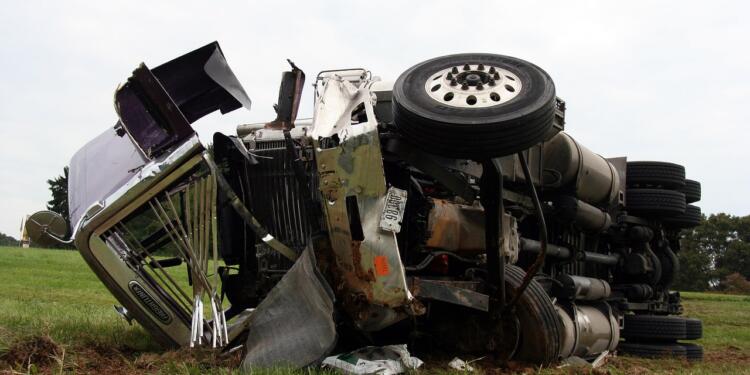Are you aware that truck accidents can often lead to severe injuries and emotional trauma? Due to their size and weight, large trucks pose a unique risk on the road, often leading to catastrophic injuries. TruckInfo reveals that there are more than 168,000 truck accidents every year in the U.S., of which 32% involve an injury and around 3% result in fatalities.
While the journey to recovery might be challenging, and in some cases, a person may never truly recover from their injuries, there’s hope for victims. Many catastrophic injury victims, despite their struggles, can find support both financially and personally after their accidents.
Victims can get an average truck accident settlement of between $100,000 and over $1 million, depending on the severity of the injury and the specific circumstances of the accident. Let’s discuss these different types of truck accidents and provide you with practical tips to avoid them.
Jackknife Accidents: Causes and Prevention Strategies
Jackknife accidents can be incredibly dangerous, but there are strategies to prevent them. One of the main causes of jackknife accidents is when the trailer of a truck swings out to the side, forming a 90-degree angle with the cab. This can happen when the brakes are applied too forcefully, causing the wheels to lock up and the trailer to skid.
These accidents can also be caused by inclement weather, distracted driving, sudden turns, and speeding, says truck accident lawyer Ken Sigelman, J.D., M.D. To prevent jackknife accidents, maintain a safe following distance from other vehicles, avoid sudden braking or acceleration, and ensure routine truck braking system inspections.
Proper training for truck drivers is also crucial, as they need to know how to handle emergency situations and avoid overcorrecting the steering wheel. By following these prevention strategies, you can significantly reduce the risk of jackknife accidents.
Rollover Accidents: Understanding the Risks and How to Stay Safe
Stay safe and reduce the risk of rollover accidents by understanding the dangers associated with them and taking the necessary precautions.
Rollover accidents occur when a truck tips over onto its side or roof, often resulting in serious injuries or fatalities. Speeding, sharp turns, overloading, or sudden lane changes are frequently the causes of these accidents.
To greatly reduce the likelihood of a rollover accident, you should follow speed limits, drive cautiously on curves and turns, and regularly check and maintain your tires. Also, make sure to distribute the weight of your cargo evenly and avoid overloading to further decrease the chances of a rollover.
Rear-End Collisions: Tips for Avoiding Truck Accidents from Behind
Rear-end collisions involving trucks can result in serious injuries and even fatalities, and letting your guard down when driving behind trucks can lead to such collisions.
Trucks need more time and space to come to a complete stop, so it’s crucial to keep a safe following distance between your vehicle and the truck ahead. Always signal your intentions in advance. This allows the truck driver to anticipate your moves and react accordingly.
Avoid sudden lane changes or aggressive maneuvers that could startle the truck driver. Be mindful of blind spots. Trucks have large blind spots, especially behind them, so make sure you can see the truck’s side mirrors to ensure the driver can see you as well.
Blind Spot Accidents: Techniques for Sharing the Road Safely with Trucks
To avoid blind spot accidents, there are a few techniques you can practice when driving alongside large trucks.
Visibility is key; always make sure you’re visible to the truck driver. Avoid lingering in their blind spots for extended periods of time, as this increases the risk of an accident. When you pass by a truck, do it quickly and safely. Signal your intentions early and accelerate to a safe speed to complete the pass.
Maintain a safe distance when following a truck to give yourself better visibility and allow the truck driver to see you in their mirrors.
Tire Blowouts and Braking Issues: Maintaining Truck Safety on the Road
When a truck’s tire blows out, it can cause the driver to lose control, leading to a potentially dangerous situation. Aside from regular inspection of their tires for signs of wear and tear, such as low tread or bulges, maintaining the correct tire pressure is also important to avoid blowouts.
Truck drivers should be aware of the weight and size of their vehicles, as braking distances can be longer compared to smaller vehicles. By leaving enough space between the truck and the vehicle in front, truck drivers can ensure they have enough time to brake safely and avoid accidents on the road.
Conclusion
By understanding the different types of truck accidents and taking preventive measures, you can significantly reduce the risk of being involved in a truck accident.
Always keep a safe distance from trucks, know their blind spots, and avoid sudden maneuvers that could cause a crash. To increase road safety, regularly check and maintain your vehicle’s tires and brakes to lower the risk of truck accidents.



























